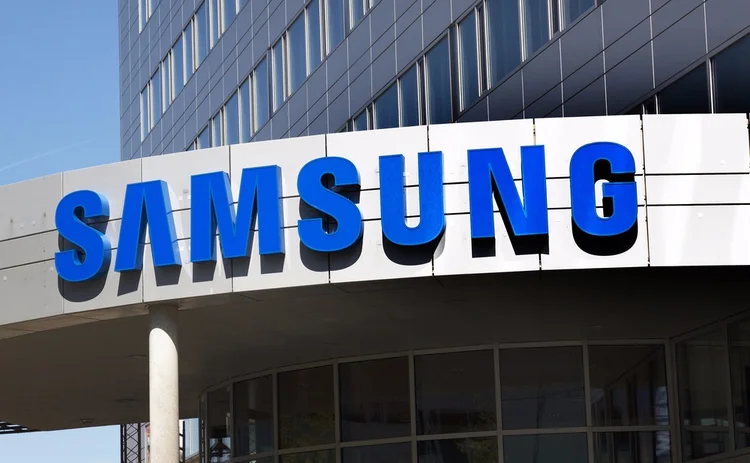Lessons Learned from Samsung's Struggles
Even in a world where time is money, it doesn't always pay to be first.

This past weekend, I flew out to Denver to attend a wedding, which included me harassing the live band the entire night to play "Shout." They finally complied during the encore, but not before stating that they would be charging an extra $1,500 for the song. Whoops.
I also went on a ghost tour of The Stanley Hotel, which, according to our tour guide, is the fourth-most haunted dwelling in the US by whoever deems it necessary to rank those types of things. The hotel was part of the inspiration behind Stephen King's "The Shining" and also featured, although not in name, in "Dumb and Dumber." Talk about range.
However, it wasn't my rendition of my favorite "Animal House" scene or my interaction with spirits that led me to think of the capital markets. It was during my flight back to New York that a certain announcement triggered my mind to switch back to financial services.
As the plane pushed back from the gate, the flight attendant went through the typical announcements everyone ignores as they try and get those last few minutes with their smartphones. But then she paused and made an off-script announcement.
"Excuse me, but I've just been told by the captain that those of you with Samsung Galaxy Note 7 devices should power them down immediately and please leave them off during the duration of the flight."
Hot Issue
I learned when I got home that the South Korean technology provider was in the midst of a crisis. An issue with the Galaxy Note 7's battery was causing it to catch fire while charging in some cases.
Issuing a recall is bad. Doing it immediately after the launch of one of your marquee products is worse. Having it coincide with the release of your direct competitor's new product is a catastrophe.
Samsung's stock reacted as one would expect under these circumstances, dropping significantly before slowly rallying. At the same time, Apple's stock has continued to rise.
Patience and Virtue
So what does this have to do with trading technology? As more firms develop bring-your-own-device (BYOD) policies for their employees, Samsung and Apple are keen to enter the void left behind by Blackberry. But when your company's phones start exploding when you charge them, it tends to complicate things.
There is also an important lesson to be learned from Samsung's struggles. This is a perfect example of why speed to market is not always the most important thing if it comes with a drop in quality.
This is pure speculation, but I'm sure the idea of launching the Galaxy Note 7 almost a month before the iPhone 7 was attractive. When deadlines get tight, sometimes things get overlooked. Granted, this appears to be due to default hardware, and not a bug in the code, but the need for proper quality control still remains.
Back in March 2015 our US editor, Anthony Malakian, did a fantastic piece on the nuance of patching. It is a delicate balancing act to ensure a patch is sent out quickly enough to address the issue while still ensuring that it doesn't completely corrupt the system. While Anthony's story was focused on new cyber threats, the same philosophy can be applied to vendors' product launches.
The appeal of being the first firm to release a new platform or version of a solution quickly evaporates when patches or updates need to be applied immediately. The capital markets have been built on being fast, particularly in recent years, but quality and efficiency are still important factors as well.
Just take a look at Samsung, who literally has seen their product go up in smoke.
Only users who have a paid subscription or are part of a corporate subscription are able to print or copy content.
To access these options, along with all other subscription benefits, please contact info@waterstechnology.com or view our subscription options here: http://subscriptions.waterstechnology.com/subscribe
You are currently unable to print this content. Please contact info@waterstechnology.com to find out more.
You are currently unable to copy this content. Please contact info@waterstechnology.com to find out more.
Copyright Infopro Digital Limited. All rights reserved.
As outlined in our terms and conditions, https://www.infopro-digital.com/terms-and-conditions/subscriptions/ (point 2.4), printing is limited to a single copy.
If you would like to purchase additional rights please email info@waterstechnology.com
Copyright Infopro Digital Limited. All rights reserved.
You may share this content using our article tools. As outlined in our terms and conditions, https://www.infopro-digital.com/terms-and-conditions/subscriptions/ (clause 2.4), an Authorised User may only make one copy of the materials for their own personal use. You must also comply with the restrictions in clause 2.5.
If you would like to purchase additional rights please email info@waterstechnology.com
More on Emerging Technologies
DeepSeek success spurs banks to consider do-it-yourself AI
Chinese LLM resets price tag for in-house systems—and could also nudge banks towards open-source models.
Standard Chartered goes from spectator to player in digital asset game
The bank’s digital assets custody offering is underpinned by an open API and modular infrastructure, allowing it to potentially add a secondary back-end system provider.
Saugata Saha pilots S&P’s way through data interoperability, AI
Saha, who was named president of S&P Global Market Intelligence last year, details how the company is looking at enterprise data and the success of its early investments in AI.
Data partnerships, outsourced trading, developer wins, Studio Ghibli, and more
The Waters Cooler: CME and Google Cloud reach second base, Visible Alpha settles in at S&P, and another overnight trading venue is approved in this week’s news round-up.
Are we really moving on from GenAI already?
Waters Wrap: Agentic AI is becoming an increasingly hot topic, but Anthony says that shouldn’t come at the expense of generative AI.
Cloud infrastructure’s role in agentic AI
The financial services industry’s AI-driven future will require even greater reliance on cloud. A well-architected framework is key, write IBM’s Gautam Kumar and Raja Basu.
Waters Wavelength Ep. 310: SigTech’s Bin Ren
This week, SigTech’s CEO Bin Ren joins Eliot to discuss GenAI’s progress since ChatGPT’s emergence in 2022, agentic AI, and challenges with regulating AI.
Microsoft exec: ‘Generative AI is completely passé. This is the year of agentic AI’
Microsoft’s Symon Garfield said that AI advancements are prompting financial services firms to change their approach to integrating AI-powered solutions.








